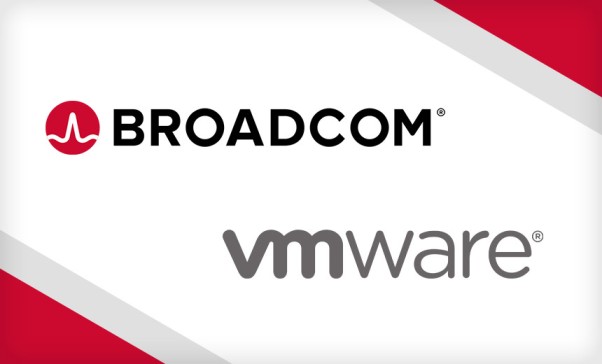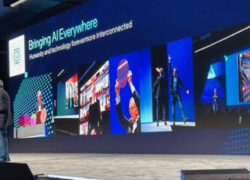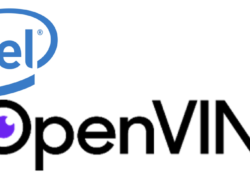VMware and Broadcom
by
Jean S. Bozman, President,
Cloud Architects Advisors LLC
and
M. R. Pamidi, Ph.D., Principal Analyst
Cabot Partners
Broadcom Completes Its Acquisition of VMware Inc.
By Jean S. Bozman and M.R. Pamidi
Broadcom, Inc. has completed its acquisition of VMware Inc., the software firm that came to prominence during the virtualization wave of the early 2000s. Now, it plans to leverage VMware’s broad installed base, its cloud-enablement software, and VMware’s ecosystem of partners, to focus on customers’ application modernization and digital transformation projects.
The move is seen as an expansion of Broadcom’s enterprise strategy to create value through integration with enterprise and cloud-enabling software. Broadcom previously acquired CA Technologies (formerly, Computer Associates) in 2018 and Symantec’s Veritas enterprise security group in 2019, and both were software companies that focused on enterprise workloads.
The combined company will be more than $45 billion in annual revenues. Broadcom reported it generated $33.2 Billion in annual revenues for the year ended in June 2023, and VMware generated $13.4 Billion for the year ended June 2023. Media and analysts had expected the news to come by October 30, but finalization of the deal awaited regulatory approval by China, following previous deal approvals by the European Union (E.U.) and the United States.
Following the merger finalization, VMware CEO Raghu Raghuram announced his resignation as CEO on November 22, 2023. As VMware’s CEO, he had succeeded VMware’s original CEO, Diane Greene, who founded the company in 1998 and stayed until 2008; Paul Maritz (in the CEO role from 2008-2012), and Pat Gelsinger (in the CEO role from 2012-2021), who became CEO of Intel.
Analysis
A Go-Forward Strategy Aimed at Application Modernization
Broadcom’s goal is to leverage its hardware and software solutions to work with customers that are modernizing IT infrastructure for use across Core, Cloud and Edge enterprise-wide deployments. VMware, and its Tanzu software for Kubernetes-based enablement of VMware’s vSphere platform, are key assets in achieving that application modernization journey – linking customers’ legacy applications with new cloud-native capabilities in multi-cloud deployments.
VMware’s broad customer base in enterprises, worldwide, made it very attractive to Broadcom, with Broadcom viewing the VMware software assets as cash-rich opportunities in customers’ modernization and digital transformation activities. Even so, Broadcom will need to make the case that it will amplify VMware’s initiatives in the application-modernization and multi-cloud market spaces.
Modernization initiatives are becoming even more compelling to customers, who realize that their legacy applications are preventing them from becoming more efficient and generating their own revenue and profits. That realization is driving IT makeovers worldwide as customers’ post-pandemic IT budgets get approved in the U.S., Europe, and Asia.
These customer moves to a cloud-native, multi-cloud world aren’t easy: many involve conversion of aging COBOL applications to Java applications, or a direct replacement of monolithic applications with distributed, modular software. Broadcom knows that VMware is already present in many of these enterprise accounts, often using Tanzu and the VMware Cloud Foundation (VCF) software platform as a launch point for customers’ multi-cloud deployments.
A Long Global Approval Cycle for This Merger
It was not surprising that approval for the merger took as long as it did – although it had to gain approval from governmental oversight agencies around the world. The entire effort — from Broadcom’s initial announcement to closing the deal – took 18 months, spanning May 2022 until November 2023.
This ambitious merger of Broadcom and VMware builds on a vision of empowering customers to update their IT infrastructure – including hardware and software – in a far-reaching and comprehensive way. Hock Tan, President and CEO of Broadcom, said of the merger’s strategy: “With a shared focus on customer success, together we are well positioned to enable global enterprises to embrace private and hybrid cloud environments, making them more secure and resilient. Broadcom has a long track record of investing in the businesses we acquire to drive sustainable growth, and that will continue with VMware for the benefit of the stakeholders we serve.”
What’s Ahead
Now that it’s free to market and sell its modernization solutions to the marketplace, Broadcom will be competing with other large companies engaged in similar modernization strategies. The list of competitors for modernization includes IBM, which acquired Red Hat (RHEL, OpenShift and Ansible) in 2019; HPE with its GreenLake software portfolio; Dell Technologies with its application-modernization services and Dell’s Apex as-a-Service; and Nutanix with its Nutanix Cloud Platform.
And here’s one more notable point: Due to ongoing co-opetition in the marketplace, systems vendors may already have VMware solutions in their modernization and multi-cloud offers to customers.
With this merger, Broadcom’s traditional enterprise business will be changing – and it will be happening quickly. The migration of enterprise applications to the Cloud and the creation of net-new applications at the Edge of corporate networks are expected to drive IT investments in 2024/25. Broadcom’s introductory press release said that VMware’s services will be an important component of those modernization and transformation projects with customers.
Specifically, as the company announced: “VMware will offer a rich catalog of services to modernize and optimize cloud and edge environments, including VMware Tanzu [for application developers] to help accelerate deployment of applications, as well as Application Networking (Load Balancing) and Advanced Security services, and VMware Software-Defined Edge for Telco and enterprise edges.”
Following the merger, Broadcom will also likely trim the combined workforce, as is often the case when two large organizations merge. Clearly, Broadcom should make every effort to retain VMware software-innovation staffers, including key product developers and managers for the most widely deployed VMware app-dev platforms and tools.
Customers will be reviewing a long list of competitive offers to achieve their organization’s IT modernization and digital transformation goals. That’s why Broadcom must differentiate its modernization and transformation services – and make them crystal-clear to the broad marketplace of enterprise customers. This is an achievable goal – and the new Broadcom must reach out to a customer base that is, suddenly, much larger than before, to make its case. We’re confident that this will happen. We are also looking forward to tracking the trajectory of this large, and impactful, combination of technologies for customers’ digital transformation.









